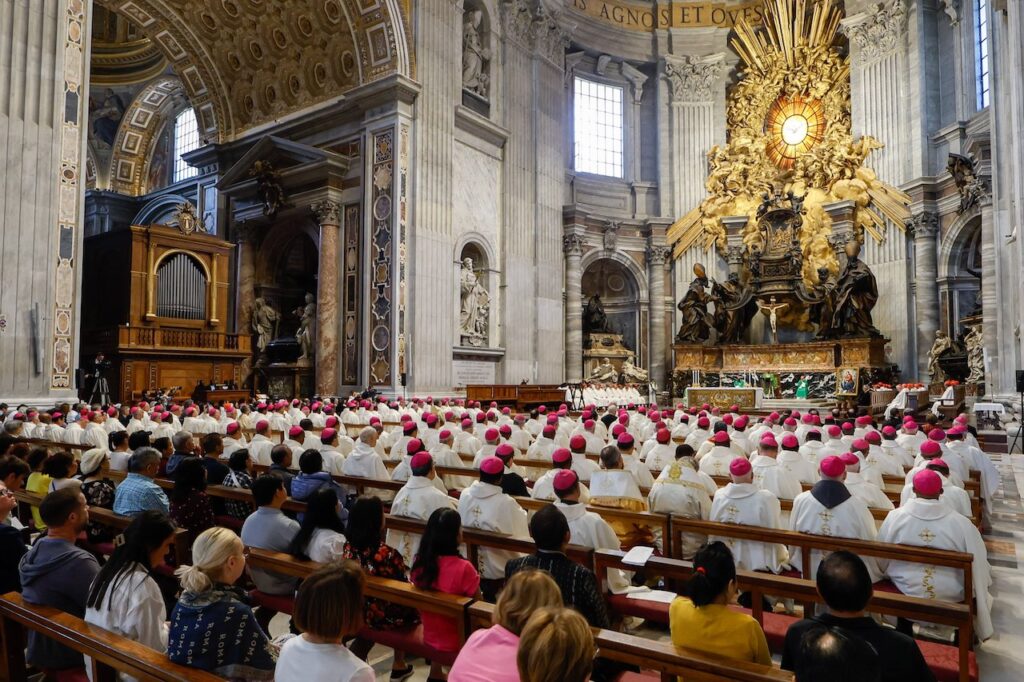VATICAN CITY (CNS) — The synod on synodality is the “new Pentecost,” which will renew active participation of all Catholics in the life and mission of their Church, a cardinal said.
The Catholic Church “needed this time of grace and discernment, a time to look back on the road we have traveled, with its glories and failures, and draw lessons for a new beginning,” Congolese Cardinal Fridolin Ambongo of Kinshasa said in his homily during a Mass with synod participants in St. Peter’s Basilica Oct. 13.
The cardinal, president of the Symposium of Episcopal Conferences of Africa and Madagascar, related the synod assembly to a reading from the Book of Joel in which the prophet calls on Israel’s priests to express their sorrow to God after a locust infestation decimated the year’s harvest and to “gather the elders together to study and seek new ways of presenting themselves before God.”
Similarly, “coming from every continent and gathered together as one family in the beauty of unity in cultural diversity, we are also invited to weep and mourn at this altar, at the tomb of St. Peter, for our weaknesses as a Church,” he said. Citing the synod assembly’s working document, the cardinal noted the crises related to sexual abuse and the abuse of power, money and conscience that “risked distancing people from the Church.”
Synod participants, he said, must “weep and ask God for forgiveness for our faults.”
“But the best way to mourn is to have the courage to embark on a path of repentance and conversion, which opens the way to reconciliation, healing and justice,” he said.
Cardinals Dieudonné Nzapalainga of Bangui, Central African Republic, and Cristóbal López Romero of Rabat, Morocco, were the principal concelebrants at the Mass at the basilica’s Altar of the Chair. Among the intentions read at Mass was a prayer to the Holy Spirit to make shine the light of the women, children and all persons in Africa who are “hopeful against all hope,” and for the Church community in the African continent to be a light to the world. The liturgical service and choir were provided by Rome’s Pontifical Urbanian University, the Vatican university dedicated to preparing people for service in missions.
After Mass, the assembly of the Synod of Bishops was scheduled to begin discussions on the synod’s third module, centered on mission and responding to the question, “How can we better share gifts and tasks in the service of the Gospel?”
In his homily, Cardinal Ambongo said that the Gospel reading from St. Luke, in which Jesus drives out a demon from a mute person, “reminds us that the devil is always present and active in our world.”
“The evil one, the demon, sows conflict, discord and division,” he said. “If we have the courage to look at our current reality as a Church, it won’t be difficult to see how the evil one is at work and influencing our way of being and acting.”
The cardinal urged synod participants to courageously combat the forces of the devil by using the “weapons of synodality,” namely, “unity, walking together, prayerful discernment, listening to each other and to what the Spirit has to say to the Church.”
“We are called to combat this powerful adversary with an equally powerful weapon at our disposal, which is the Holy Spirit, protagonist of this new way of being Church — the synodal Church,” he said.

